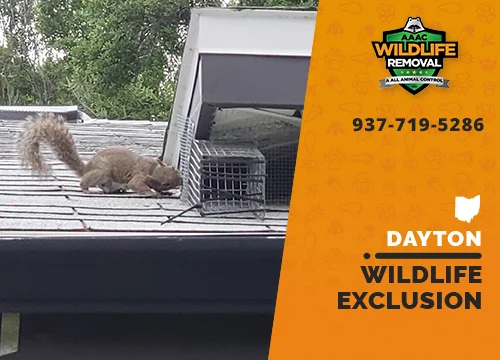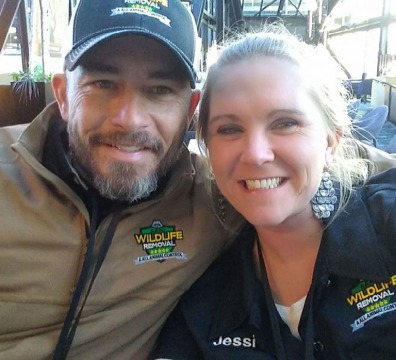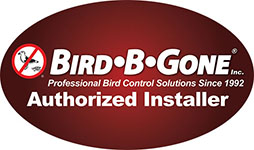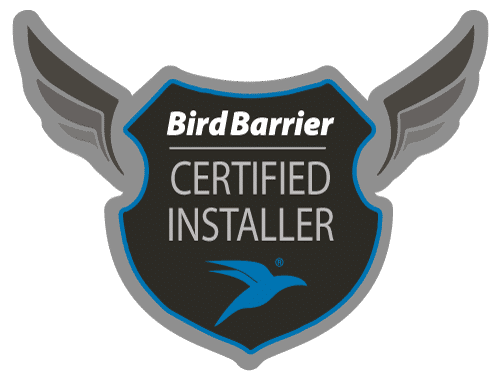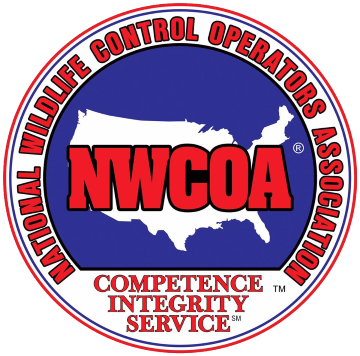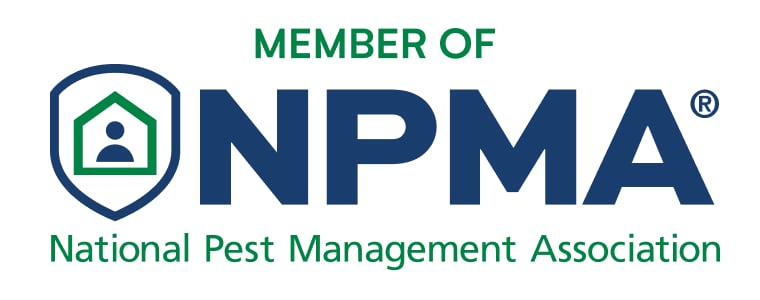
What is Wildlife Exclusion?
Exclusion refers to sealing any animal entry points in your home or place of business that prevents them from returning inside. It’s easier than trying to exclude wildlife on your own since you can do it all at once; for example, if you have rats coming in through the basement, seal off the holes they could come in from.
AAAC Wildlife Exclusion Services can provide humane exclusion for any species of wildlife that could pose a danger to your home or business. Exclusion is done safely and correctly by our highly-trained staff.
If you have animals living under your house or inside the walls of your building, we can help! We will seal up any entry points found by animals, including holes in floors or cement cracks around pipes.
How we conduct wildlife control and exclusion services
Some nuisance wildlife has managed to sneak into your home or office. Now you want to trap them, and maybe even get rid of them. You can’t just trap them. Although you may be able to eliminate the first infestation, if you don’t do wildlife exclusion, you can only wait for the next group to arrive. These are the steps that we use to end the cycle of infestations using animal exclusion methods:
Find and seal all entry points:
We begin by finding all access points used by animals. These could include cracks in floors or cement cracks around pipes, which is basically where an animal might gain entry to your home or business. This can include roof flashing and soffits as well as holes in roof shingles. We then block all access points. Sometimes we can achieve this by drilling metal or rubber grommets onto the hole. This also seals the area. We can also use wire mesh to cover holes. Next, cover your hole with a waterproof covering. It will keep it safe from the elements. Finally, we need to wait to see if any other openings could allow animals into your building before sealing them.
Exclude wildlife using a trap or one-way door
Pest control professionals will usually locate the main entrance wild animals use to enter your home or workplace. We intentionally leave the hole open to allow us to use it to exclude your nuisance wildlife. Once we have identified the hole, we can either use a live trap or a one-way door.
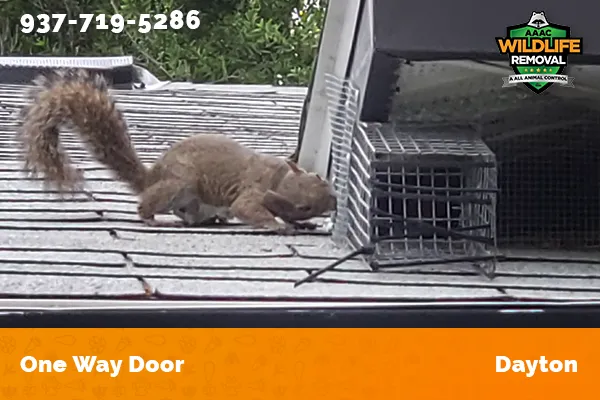
One way doors: A one-way door is a good option for those people who don’t want to kill the animal. These doors allow animals to enter but not exit. The door should be opened so the animal can pass through but too small to allow them to turn around and exit. Then, we place some bait on the other side of the opening and wait until the animal enters. It will be impossible for them to get out once they have moved towards it. They won’t be able to open the door from their side.

Live traps: To use a live trap, place traps near any openings that animals could use to get in. By placing traps near these openings, we can lure the animals into our trap so we don’t have to deal with them or see them at all. We place bait in the trap and once an animal gets inside, it’s caught! We might need to install a cage trap if we are trying to trap larger animals like raccoons or opossums. It is a wire mesh trapping device that keeps the animal inside. Then technicians from our wildlife removal firm will take it out of your home.
Popular access points for animal entry
A wildlife pest control specialist must examine all ways in which wildlife can enter your home. AAAC Wildlife Removal does a thorough job, but here’s a quick overview of the most common access points animals use to enter your home.

Ridge Vents
Bats typically enter attics through the ridge vent, which is a metal strip that runs along the edge of the roof. Ridge Guard is a product that seals any openings at the vent. After the vents have been sealed, we can complete a roof repair to ensure your home is animal-proof. If you take photos of the roof, we can give you an idea of whether or not your ridge vents are open to animals.

Gable Vents
Raccoons, squirrels, and other types of wildlife typically enter through the gable vents found on so many homes. These vents allow airflow in hot weather. They can be screened or have a flap that can be opened with the animal’s paw. We can secure these vents with a wire mesh. This allows for airflow, but does not allow animals to enter. We can also secure the vent flaps and replace any rotted wood that may have allowed an opening for critters to enter in the first place.

Dryer Vents
Dryer vents can be a common entryway for rodents or birds. If rodents find themselves migrating from one place to another looking for shelter and food, they will most likely use dryer vents as a way to enter your home. The airflow that comes through dryer vents is enough to keep them alive, so it’s important that we secure these areas with metal mesh and seal up any openings in the vent itself.
Birds enjoy dryer vents because of the warm airflow moving through them. As birds use dryer vents to access nesting spaces, you may see an increase in your electricity bills. Installing common vent guards is the best preventative measure for this problem.

Soffit
Damaged soffits are a perfect entry point for rodents like squirrels and raccoons to climb into attics. A professional wildlife removal service operator will replace any wood that has rotted and seal the openings using metal mesh or closures. Your soffit will look like new, and all rodents will be gone.

Fascia
Wild animals love to visit the fascia of a house. The fascia is what would be underneath the gutter at the edge of your roof if you had gutters. The fascia is a longboard that fills in any space between your roof and your eaves. We cover all gaps with metal mesh to prevent wildlife access. After that, we replace and remove any rotten wood and install a metal cover that blocks water from flowing freely.

Eaves
Raccoons love getting into your home through the roof eaves. Eaves are the edges of your roof where it meets the side of the house. For wildlife exclusion, our technicians can simply secure any gaps in this area using metal mesh, or we can install special eaves guards that will keep animals from entering again.
The Chimney
A chimney is one of the most common entry points for animals into a home. We use chimney caps that will prevent this entryway, or we will remove and replace chimney liners if we need to get rid of critters that are already inside.
The chimney is a cozy place for bats, squirrels, and other animals. This is a difficult access point for animal control companies to check as fire hazards and venting are present. We will often use flameless heat detection cameras to figure out where the animals are hiding in order to remove them safely, or we can just remove the old liner and cap and then replace them.

Cracks in the foundation
Foundation cracks are rodents’ favorite entry point. We can fill foundation cracks with cement filler compounds to keep rodents out of your home. This type of repair is not only animal-proof but will also make your home appear better from the outside.

Exposed pipes
Exposed pipes are a favorite way for rodents to enter your home. You can prevent this by covering up any openings with metal mesh. Then, cover them with a cap that allows air to circulate freely through your home.

Wildlife Damage Repair Service
Once your wildlife exclusion is complete, it’s important to repair the damage that rodents, squirrels, bats, birds, mice, rats, or other pests may have caused. Most wild animals will make their doorway into your home larger by gnawing at it with their teeth or scratching at it with their claws. This can cause some serious damage.
Our wildlife damage services are the best in the industry. We have the carpentry and contracting experience to handle even the most difficult wildlife damage. Our contractors can repair damaged drywall, insulation, and wood by themselves or in a group. They have the experience and knowledge to fix your home quickly and efficiently, reducing the likelihood of suffering future animal damage.
Learn more about Wildlife Damage Repair

Attic Restoration
Your attic could be infested by a nasty infestation and may contain urine, feces, or blood. This can make your attic smell awful and provide a breeding ground for mold. Our pest control experts will replace any contaminated insulation by fresh materials that have been treated against humidity and odor. We can also replace insulation damaged by rats, mice or squirrels with new materials that are secured to your attic floor by heavy-duty staples. Attics will look like new again with our attic restoration service!
Learn more about Attic Restoration
Wild animal pest control
Exclusion is an effective method of controlling wildlife pests. Wildlife can be humanely caught or encouraged to leave. They are then prevented from returning once the openings have been sealed. This article provides information about a professional wildlife exclusion service that resolves the problems caused by wild animals. Call AAAC Wildlife Removal today for an expert wildlife exclusion service!

